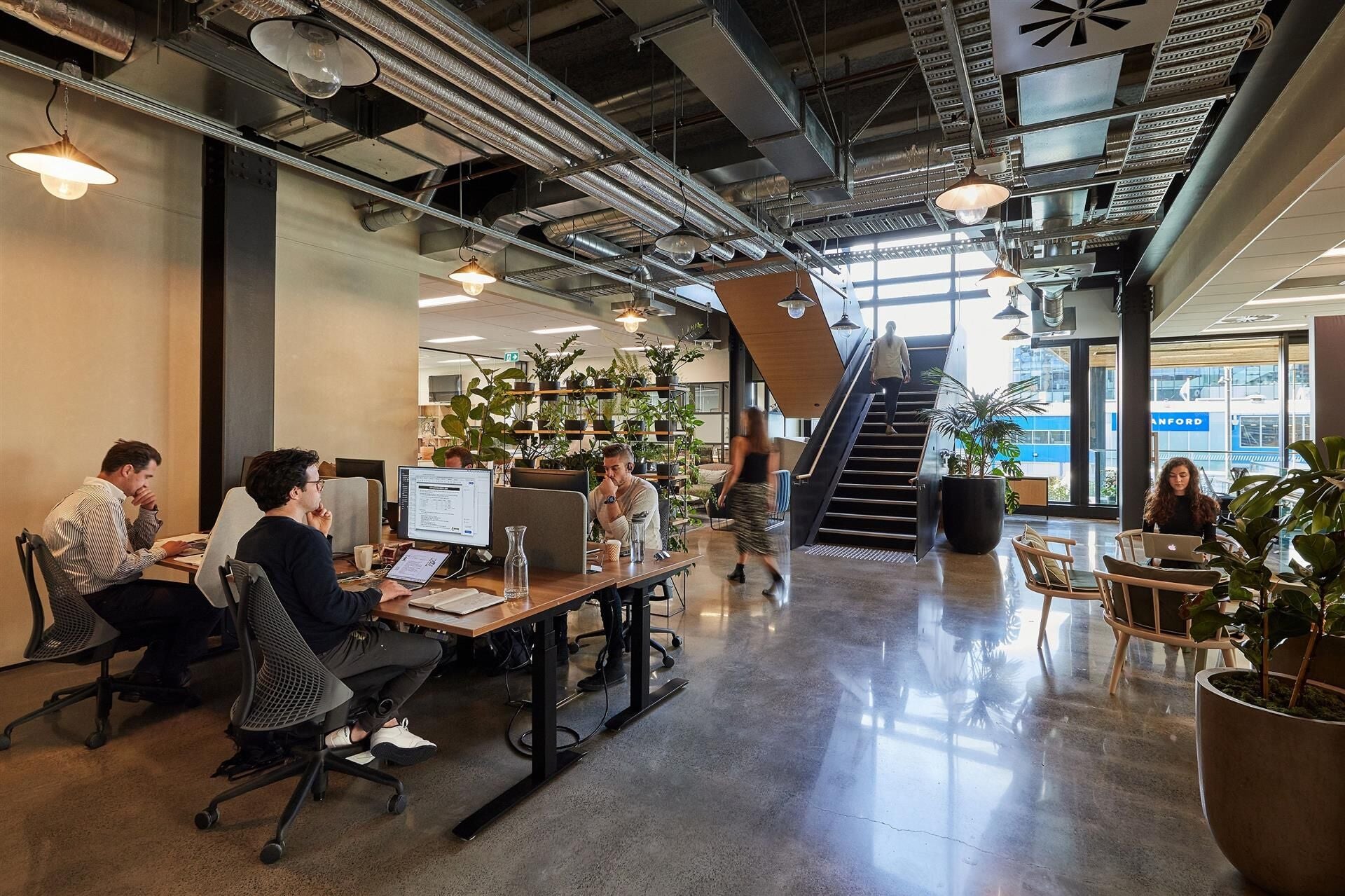Flexible commercial terms underpin growth in the co-working sector


Analysis in its latest report titled ‘Co-working +’ shows there is now more than 55,000sq m of co-working footprint in Auckland with a strong pipeline estimated to add some 19,000sq m by year-end.
Lloyd Budd, director Auckland commercial and industrial says the flexible space sector continues to evolve by attracting large corporations increasingly moving to a hybrid working environment.
“A hybrid working model enables businesses to diversify employment options with a mixture of remote and office workers,” Budd says.
Large operators IWG, B:Hive and Generator which hold 77 per cent of Auckland’s market are noting greater appetite from multi-national corporations following pandemic lockdowns and a global shift toward flexibility in the workplace.
“One of the lasting legacies of the pandemic will be the ability to work in different ways, and more companies will have a distributed workforce empowered to work closer to home,” says Alexander Sykes, IWG’s country manager – New Zealand.
The global appetite for co-working is evident, with IWG - the world’s largest workspace operator - recently signing a landmark deal with Japanese telco NTT.
The deal will provide NTT’s 300,000 international employees with access to more than 3,300 global workspaces currently operated by IWG.
“Businesses have emerged from regional lockdowns making a shift, working from home has moved to work near home,” Sykes says.
FLEXIBLE TERMS
Once the realm of creative industries conjuring images of standing desks and beanbags, Sykes says big players have been well-established in the flexible workspace sector for years.
IWG has had multi-national corporations on its portfolio for nearly three decades, with these businesses finding value in the model of private, dedicated office space mixed with the use of shared public space within a building.
“This is where space efficiency facilitates cost efficiency,” he says.
“If these corporations were looking at traditional office real estate, they might take on a huge floorplate to incorporate meeting rooms and break-out space only utilised once or twice a week.”
Budd agrees the traditional allure of co-working spaces endures but says that businesses are increasingly looking to flexible occupancy terms to provide value.
“There is the space they are looking for, and terms they’re looking for,” he says.
“The space is close to public transport, it has amenities, it’s what we’ve been talking about for years, the big surprise for me is seeing the terms people seek; a 12-month lease? Is there a break-clause?”
“People get more flexible commercial terms within the space as opposed to the space itself being different,” he says
For Sykes and IWG, flexible commercial terms underpin their attractiveness for businesses establishing a new presence, with high-growth companies increasingly seeking flexible models while they manage a transition into a new market.
“When a business first comes into the country, they might not know what their needs are, flexible term agreements allow time to stabilise, get a footing in the market and potentially expand their team without being held to prior lease arrangements,” he says.
PRODUCTIVITY AND WELLBEING
In New Zealand post-lockdown, operators noted the effect of greater enquiry for flexible office solutions as businesses developed a better understanding of their capabilities beyond the traditional office environment.
Businesses reported pain points around employee wellbeing while unable to access a professional environment, with higher employee satisfaction resulting from the shift to a hybrid working model.
“Hybrid workspaces are energetic because you’re part of a dynamic community where shared spaces could offer networking events, collaborative opportunities, health, fitness and professional development,” Budd says.
“Add to that a consciousness around the environmental impact of the daily commute, as working from a shared space, closer to home, three times a week (as opposed to five) immediately and significantly reduces the weight of traffic on our roads.”
“The ability to work closer to home also gives businesses an edge to recruit and retain high-calibre candidates that expect this level of flexibility,” he adds.
MANAGEMENT STRUCTURES
The growing appetite for co-working space has seen an upswing in interest from investors in the sector.
Of recent deals, Budd notes Manson’s has partnered with IWG in a management agreement for a prominent building in Auckland’s CBD, while NZX-listed Precinct Properties purchased Generator in Britomart and Goodman has recently launched an RFP for a co-working space in East Tamaki – illustrating the value big players see in the sector.
“The investors, the landlords, the money is seeing co-working as a smart play,” Budd says.
“The institutional market has realised co-working is not a threat to workplaces, they are now using it to their advantage.”
“They’re thinking ‘let’s have 5-10 per cent of our building as a co-working space’, it can be used to attract bigger tenants as well,” he says.
Bayleys Research highlights the growing move toward a revenue-sharing capital-light model where the operator brings in their expertise while sharing the reward with the owner.
A number of co-working operators are partnering with landlords sharing rent and expenses.
“The majority of our 17 centres across New Zealand are managed in landlord partnership arrangements, with some, in operation for four-plus years showing attractive returns with landlords undertaking multiple site opportunities,” Sykes says.
“Landlords are benefitting in revenue but also amenities, we are having for RFPs coming through from businesses seeking co-working as an amenity, lots of businesses are now tapped into using project space or overflow space.”
“Revenue-sharing partnership deals with upside to landlords plus the franchise pipeline is the way that New Zealander’s will grow the most over the next two to three years,” he adds.
